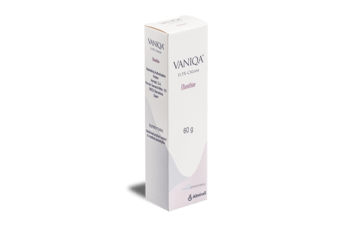Hirsutism (Unwanted Facial Hair)

More information
Introduction
Buy Hirsutism - Female Facial Hair Treatment Online
Hirsutism is the name given to cases of excess facial or body hair in women. It is caused by a hormonal imbalance, and can sometimes cause feelings of distress.
- Affects 1-3 women out of every 20
- Can be a source of frustration and difficult to manage
- Excess facial hair easy to treat with Vaniqa
You can buy treatment for hirsutism quickly and easily online using our prescribing service. Take our questionnaire, have our prescriber review it and send to the pharmacy for dispensing if approriate.
Please click here for further information on excessive hair growth (hirsutism).
Treatments
More information
Once an online consultation has been been approved by our medical team, our pharmacy will safely prepare and ship your treatment to you in discreet packaging using Royal Mail or DPD.
What is Hirsutism?
Hirsutism is excessive hair growth in women, on areas where hair does not usually grow. All women experience hair growth across their whole bodies and leave a lot of areas untouched (such as the arms), but choose to remove the hair on others (such as the armpits, legs and genital region). However, it’s considered excessive hair growth when it happens in other areas such as the face (chin and upper lip in particular), chest, stomach and back.
This hair is present on all women but is usually very fine, light and short to the point where it’s virtually invisible. However, for women who suffer from hirsutism, the hair becomes darker, coarser and thicker, to the point where it’s very noticeable.
Along with the excessive hair growth some women may often experience other symptoms such as acne, other dermatological issues, deeper voice and an enlarged clitoris.
Causes
Female Facial Hair Causes
Hirsutism is caused by an excess production or action of hormones called androgens, secreted by the ovaries or adrenal glands and produced locally in the hair follicle. Several different conditions can lead to hirsutism. The two most common causes of hirsutism is polycystic ovary syndrome (PCOS) and idiopathic hirsutism. Both are diagnosed by a physical examination, medical and family history, and sometimes blood tests.
Polycystic ovary syndrome — Women with PCOS often have hirsutism in combination with menstrual irregularities. Women with PCOS may also have acne and balding near the front of the head. PCOS is a chronic condition, but several treatments can reduce hair growth. Women with PCOS often have irregular menstrual cycles because they are not ovulating each month.
PCOS is also associated with other medical problems, such as infertility (due to irregular menstrual cycles), obesity, diabetes mellitus, high cholesterol levels, and possibly heart disease. Effective treatments for PCOS are available. (See "Patient education: Polycystic ovary syndrome (PCOS) (Beyond the Basics)".)
Idiopathic hirsutism — Idiopathic hirsutism refers to hirsutism that has no identifiable cause. It is usually chronic and may be a mild variation of PCOS. A gradual increased growth of coarse body hair is typically the only symptom in women with this condition. Menstrual cycles are normal in women with idiopathic hirsutism.
What treatments are available?
Hirsutism Treatments
One of the most popular choices of treatment for excess facial hair growth is a product called Vaniqa, which is made by Almirall, a Spanish-based pharmaceutical company. The medicine is a cream, which is applied directly to the facial area experiencing symptoms.
Other methods include:
- losing weight if you're overweight – this can help control hormone levels
- things you can do at home to remove or lighten the hair – such as shaving, waxing, plucking, hair removal creams or bleaching
- taking a contraceptive pill – this can help control hormone levels
FAQ
What causes Hirsutism (Unwanted Facial Hair)?
Female Facial Hair Causes
Hirsutism is caused by an excess production or action of hormones called androgens, secreted by the ovaries or adrenal glands and produced locally in the hair follicle. Several different conditions can lead to hirsutism. The two most common causes of hirsutism is polycystic ovary syndrome (PCOS) and idiopathic hirsutism. Both are diagnosed by a physical examination, medical and family history, and sometimes blood tests.
Polycystic ovary syndrome — Women with PCOS often have hirsutism in combination with menstrual irregularities. Women with PCOS may also have acne and balding near the front of the head. PCOS is a chronic condition, but several treatments can reduce hair growth. Women with PCOS often have irregular menstrual cycles because they are not ovulating each month.
PCOS is also associated with other medical problems, such as infertility (due to irregular menstrual cycles), obesity, diabetes mellitus, high cholesterol levels, and possibly heart disease. Effective treatments for PCOS are available. (See "Patient education: Polycystic ovary syndrome (PCOS) (Beyond the Basics)".)
Idiopathic hirsutism — Idiopathic hirsutism refers to hirsutism that has no identifiable cause. It is usually chronic and may be a mild variation of PCOS. A gradual increased growth of coarse body hair is typically the only symptom in women with this condition. Menstrual cycles are normal in women with idiopathic hirsutism.
What treatments are available?
Hirsutism Treatments
One of the most popular choices of treatment for excess facial hair growth is a product called Vaniqa, which is made by Almirall, a Spanish-based pharmaceutical company. The medicine is a cream, which is applied directly to the facial area experiencing symptoms.
Other methods include:
- losing weight if you're overweight – this can help control hormone levels
- things you can do at home to remove or lighten the hair – such as shaving, waxing, plucking, hair removal creams or bleaching
- taking a contraceptive pill – this can help control hormone levels
Guides
How it works

First...
Complete a quick eligibility check

Then...
Order your treatment

Finally.
Fast, confidential delivery to your door

















